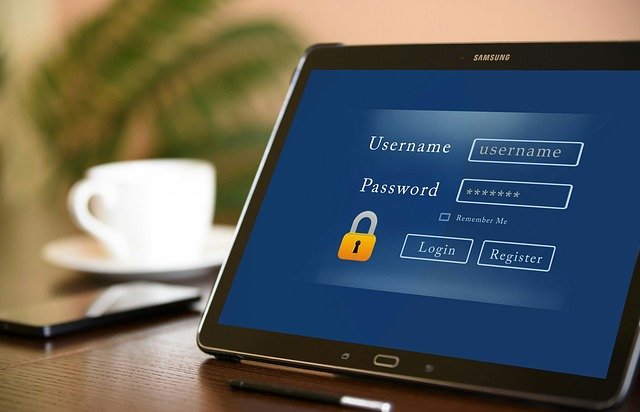6 Reasons Why Your Business Needs A Password Manager
Managing a business is hard work. You need to consider many factors to take your company to the next level, and one of them is ensuring your employees are careful with their passwords. In this era of digitization, data is essential in keeping your organization afloat, so it must stay protected behind a password.
Unfortunately, your workers may not be the best guardians for maintaining a strong passcode. They may accidentally blurt it out, reuse the same weak password or consistently forget what their original passcode was. Therefore you need to take matters into your own hands and introduce a password manager.
This is a one-stop solution that removes all your cybersecurity concerns. Curious to know how? Read on:
What is a Password Manager?
Password managers are applications or software that keep hold of all passwords used in your organization. So instead of letting your employees personalize passwords, you’re providing one for them.
In 2019, Google Online Security Survey found that more than half the users use the same password for most of their accounts. Not only is this risky, but you can easily get hacked if you’re reusing a predictable password for every platform. Therefore by subscribing to a password manager, you no longer have to worry about these fine details.
You only need to download an application that allows you to access the manager. Depending on your operating system, you must check which option is suitable for your devices. For instance, the password app for android is best for gadgets that use a Linux-based operating system, making it compatible with your gadgets.
Once you acquire the program, it’s smooth sailing from here. The application will handle the grunt work of saving credit card details, important email passwords, and social security numbers for you.
Benefits of A Password Manager
According to a 2019 Verizon Data breach report, over 80% of data breaches were caused by weak passwords. While you may assume that your birthdate is highly unique and suitable as a safe password, it is incredibly predictable, making it easy to access the database.
Here’s how a password manager steps in:
- You Don’t Have To Remember Your Passwords
One of the reasons why your workers may be adamant about keeping a predictable password is because they’re easy to remember. The name of their children, anniversary dates, and first pets are hard to forget. But this information is easy to retrieve, making them unsuitable as a password.
All a hacker needs to do is look into your employee and note down the names, dates, and events which are dear to them. Password manager removes the need for your password to be easy. So you no longer have to remember what your code is. The manager will automatically save it. Therefore don’t hesitate to freestyle it with punctuations and symbols.
- Straightforward Access
A password manager autocompletes your passwords when it knows you’re the administrator. You may be one tap away from logging into your database and getting to work. This saves you extra time trying to type out your password only to know you messed up and have to try again. The same goes for your employees. It takes way too much of the company’s time when your staff tries to enter their respective servers but cannot get through on the first attempt.
Sometimes, your employees may have to reset their password because they may have trouble remembering it. But a password manager is a centralized system. As a business owner, you can control access to the database without needing your staff to recall anything.
- Double Layered Security
A password manager is extremely cautious about security. Even if you have the application on your computer, it will ensure you are the authorized user through two-factor authentication. This can be anything from a finger scan to a one-time pin sent to your phone, which you must enter at a specified time.
Two-factor authentication prevents unhindered access to your network. If you have an unauthorized login, you get a notification on your registered device, which helps you avoid a possible hacking attempt.
- Helps Manage Account Sharing
At a time, more than one employee may need access to the same account. For instance, your marketing and design team may need to know the password to your public business pages. As the company owner, you may lose track of who you already gave the password to and who from the authorized team has yet to get the password details.
This can become very chaotic in a small amount of time. However, you can control access to the same database through a password manager. You can grant permission by listing the employees using the same account on the manager. Certain password managers allow the employee in the senior management position to decide on the password and provide automatic access to the employees listed without sharing the details.
- Not Easy To Fool
Phishing is one of the ways through which cybercriminals try accessing your database. These are fraudulent emails that are posed as authentic company messages. These emails may prompt your employees to enter their password to access the locked information, such as confidential data analysis. While in reality, it takes the passcode and launches a virus hacking into the system immediately.
Password managers cannot get fooled the same way. While you can autocomplete your details, the manager will not let you enter if the domain name is incomplete, irregular, or looks corrupted. So even if your employee accidentally tries submitting a password, it will not work.
- Prevents Losing Passwords
Losing passwords is risky for any business. Even if your employee goes for a password change after losing the first one, it can still pose a risk to your company’s security.
Certain employees may use their diary or sticky notes to remember a necessary password; these can get destroyed or lost, which adds to the security risks. However, a password manager recognizes all the passcodes, so there’s no need to note them down physically. All your employees need to do is access the database.
Final Thoughts
Digitization has made life more convenient but also introduced many security risks. Data can get hacked if you’re not careful about accessibility. This is why you can’t haste the process of choosing a strong combination when it comes to passwords. Unfortunately, recalling a long and complex passcode is not simple. You may make mistakes with your entry. Therefore, you need a good password manager to handle your security details.
These applications store all your company’s passwords and allow you to limit employee access to the database accordingly. Password managers also support two-factor authentication. So unless you have all your devices at hand, no one can access your database without permission. It also sees through the weak attempts at phasing, which keeps your private data safe from possible hacks.





